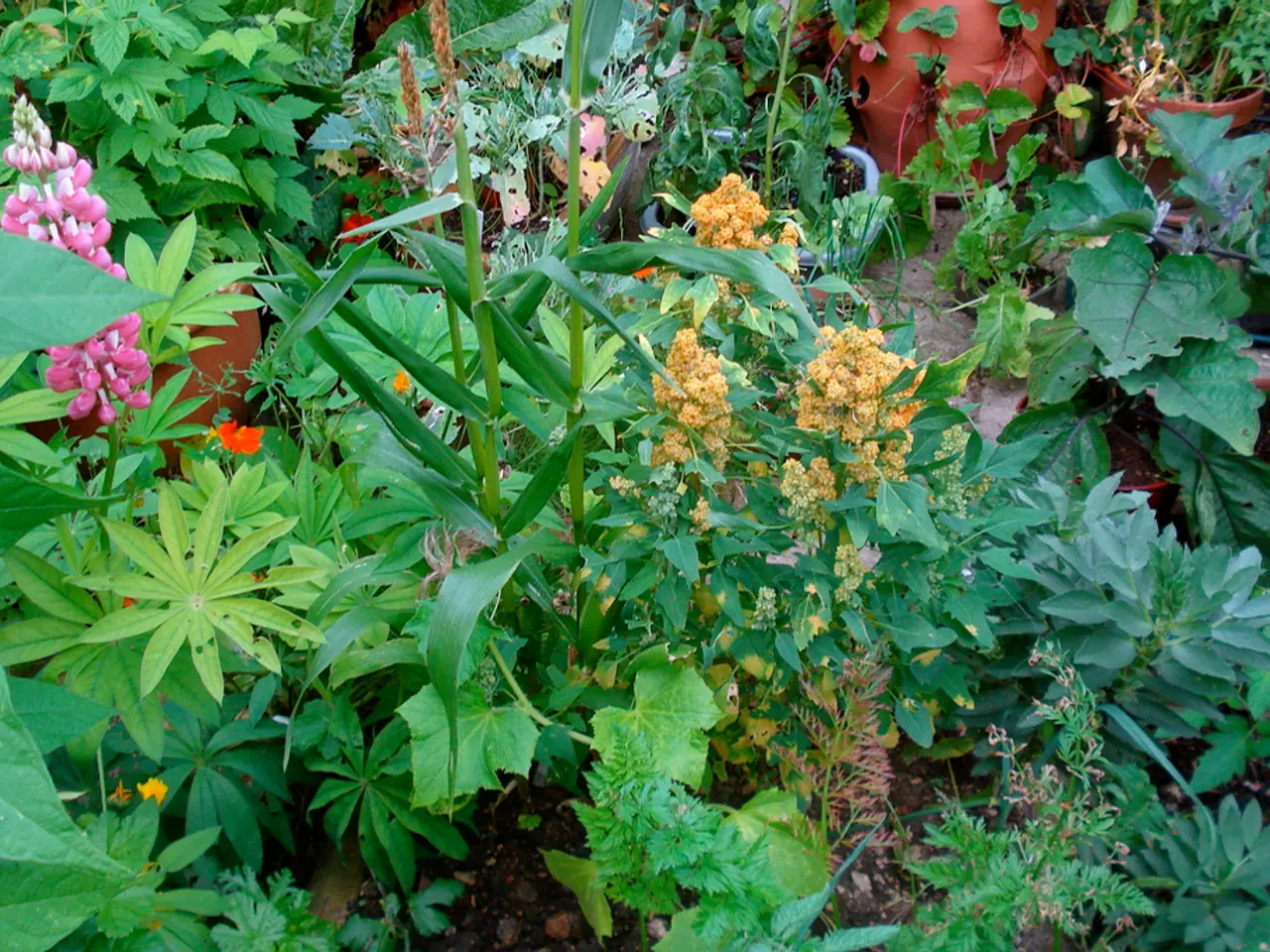Garden Ecosystem: Understanding the Connection and Interplay of Plants, Animals, and Soil
In our daily lives, we often overlook the intricate web of life that exists in our very own backyards. A garden, as it turns out, can be considered a natural ecosystem, teeming with a myriad of organisms and their interactions.
An ecosystem, by definition, is an area containing plants, animals, and other organisms, along with their interactions and natural components like minerals, water, and sunlight. The garden, with its diverse array of flora and fauna, fits this description perfectly.
The biotic components, or living organisms, of a garden ecosystem are as varied as they are essential. Plants, fungi, microorganisms, and a multitude of animals call the garden home, each playing a unique role in the ecosystem's balance.
Plants, the primary producers, harness energy from the sun and convert it into food through photosynthesis. This energy is then passed on to animals when they consume the plants, forming a food chain that underpins the entire ecosystem. Dead plants, too, contribute to the ecosystem by providing energy to microorganisms and earthworms, which break down plant material, producing heat and other forms of energy.
The garden's soil is a fascinating mix of biotic and abiotic components. It is home to countless microorganisms, worms, and insects, while also providing the necessary minerals, water, and temperature for the plants to thrive.
The structure of a garden ecosystem is as intricate as it is beautiful. Plants and animals interact in complex ways, each component influencing the others. For instance, insects living under a flowerpot form their own miniature ecosystem, with predators, prey, and pollinators all playing their part.
A healthy garden ecosystem not only supports the local environment but also benefits humans. It provides food, clean water, air purification, and even contributes to climate and weather regulation. A garden rich in biodiversity offers a habitat and food source for a variety of animals, helping to limit the spread of pests or diseases.
The importance of ecosystems, including gardens, extends far beyond their immediate surroundings. On a global scale, the health of ecosystems is crucial for the survival of all organisms living within them and for humans. Deforestation in large rainforests, for example, contributes to climate change by reducing carbon absorption.
In the garden, we can make conscious choices to boost ecosystem health. By avoiding chemical pesticides and herbicides, limiting fertilizer use, and improving soil with organic material and no-dig gardens, we can create a thriving, self-sustaining ecosystem that positively impacts the local environment.
The garden, in its essence, is a microcosm of the world, a testament to the interconnectedness of life. It is a reminder that every action we take, no matter how small, can have a ripple effect on the world around us.
The main author of this article about the garden as an ecosystem is Dajka.
Read also:
- visionary women of WearCheck spearheading technological advancements and catalyzing transformations
- Recognition of Exceptional Patient Care: Top Staff Honored by Medical Center Board
- A continuous command instructing an entity to halts all actions, repeated numerous times.
- Oxidative Stress in Sperm Abnormalities: Impact of Reactive Oxygen Species (ROS) on Sperm Harm








